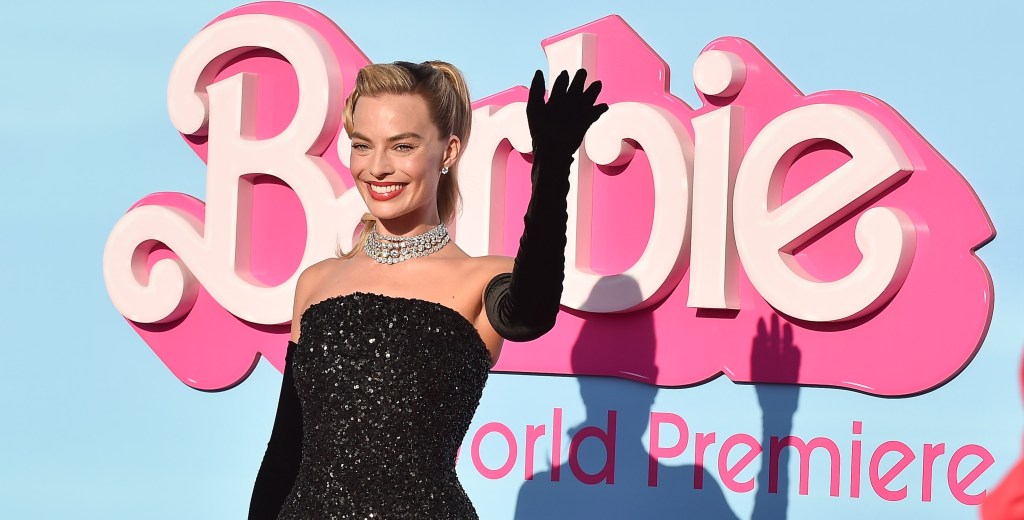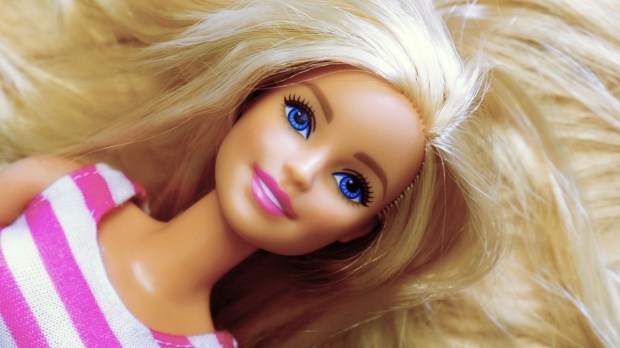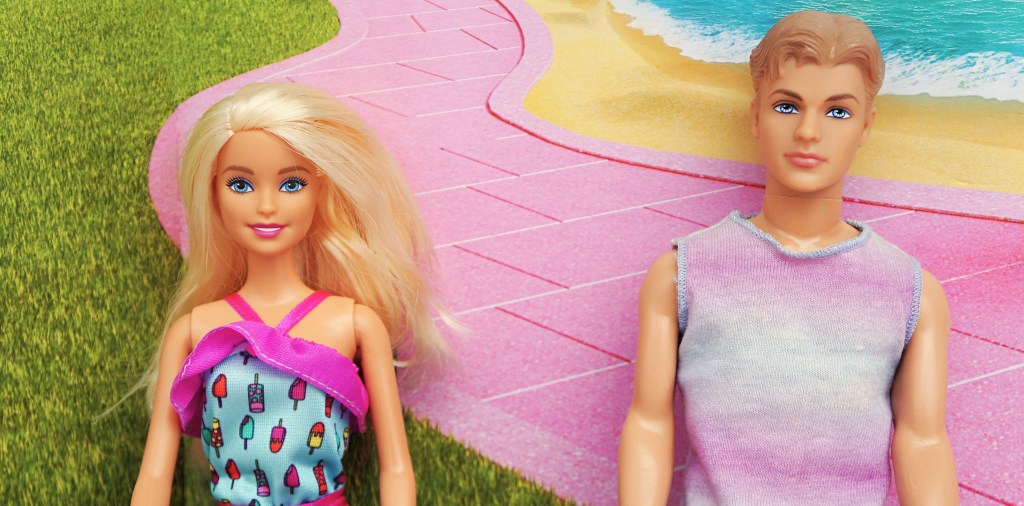Lenten Campaign 2025
This content is free of charge, as are all our articles.
Support us with a donation that is tax-deductible and enable us to continue to reach millions of readers.
As someone who played with Barbies more than any other toy as a kid—shout-out to my beloved Pioneer Barbie—I had high hopes going into the Barbie movie.
If nothing else, Barbie is a fun watch, creative, clever, and visually stunning. But I found that it’s missing a critical vision of the human person, leaving the audience with a surprisingly sad message.
*Warning: Lots of spoilers ahead.*
A film about growing up
Barbie is about growing up as a woman. The story shows what’s going on inside a girl’s head as she leaves behind childhood.
The film starts sweet, simple, and innocent, as if you’re playing with real-life Barbies. But then Barbie and Ken enter the Real World, and things get complicated.
In Barbieland, girls rule, and boys are an afterthought. When Ken gets to the Real World and discovers “the patriarchy,” he tries to bring it back to Barbieland and seize power.
Barbie’s discovery of injustice comes as a rude shock, like what a young girl might feel when she learns about these things.
But the film leaves this realization mostly unresolved, and that’s the problem. (As other reviewers noted, “one of the film’s weaknesses is too many underdeveloped ideas.”)
A hopeless competition
Barbie made me think of Chaucer’s Canterbury Tales, of all things, and the Wife of Bath’s Tale. In this medieval story, a wealthy tradeswoman who has been married five times argues that all women want is power, or “sovereignty,” over men.
Barbie felt like the exact same point, but in reverse. All Ken wants is power over Barbie.
At the end of the film, she takes back power, and Ken is once again disenfranchised. They never work in cooperation or collaborate. A relationship of mutual respect is what’s missing from Barbie.
In the world of the Barbie movie, whether the characters are in Barbieland or in the Real World, men and women don’t act as if they are “one and the same in dignity” (CCC 369). They’re always jockeying for power over each other.
I didn’t take my young kids to see the movie, but I told them a little about the plot, and this point left them incensed: “Why are Barbie and Ken enemies?! They’re in love! They’re on the same team!” That was how I felt about it myself.
I found this to be an unexpectedly dark message for such an otherwise frothy bubblegum-ball of a film. It made me sad to think of young girls watching this film and thinking that this is what they can expect from adulthood — objectification, endless competing with men for control, and rampant discrimination.
Obviously these things are realities, but the movie stops there and doesn’t show the good that is possible between men and women.
The missing vision
In the end, Barbie chooses to become human. Her inventor shows her the beauty of love, friendship, and family, and she decides the good parts of living in the Real World outweigh the bad.
Yet the lack of a mutually respectful relationship, or even a real friendship, between a man and a woman seems like a critical missing piece in Barbie. As another reviewer said, “Men and women are not the same, but we need not exist in conflict.”
Is it totally naive to think that men and women can truly respect each other, and even feel totally unselfish and noncompetitive love for one another? To think that we can genuinely cooperate with the opposite sex with no thought of competition at all?
I see this kind of self-forgetting respect in my own marriage and those of my friends — relationships where we practice “fair play” not because of some transactional “tit for tat” economics but out of a true desire to “bear one another’s burdens” (Galatians 6:2).
I wish young girls watching Barbie would also see that mutual respect between the sexes is not only possible, but is what they should actively seek in their own friendships and romantic relationships. (You might think “Well, teens can handle this message,” but judging from my social media feed, many very young girls are going to see Barbie in theaters.)
My favorite take on this missing vision came from my husband, who—in a typical move for both of us—liked the movie a lot more than I did.
“I don’t think the movie needed to give us the example you want,” he said. “It showed us the problems. Now it’s up to us to fix them.”

The Midge and Allan Hot Take
Much has been said about the pregnant Barbie, Midge. I think a lot of the drama around her character is overthinking things. Yes, the other characters call her “weird,” but also they call many other Barbies weird, including a different Barbie whose name is literally “Weird Barbie.”
Midge brings up a little-known detail from Barbie history that solved a central mystery of the film for me, and perhaps offers the missing vision I wanted to see.
The role of Allan really confused me. He is the only male character in Barbieland who helps Barbie and her friends win back power over Ken and his crew.
Why on earth does Allan ally with the women in the film? Why does he work together with them to restore their control over Barbieland?
It all suddenly made sense when I found out that, in real Barbie history, the character of Allan was invented as a husband for Midge and is the father of their unborn baby girl. He even came with a little stroller!
Somehow it checks out that, in Barbieland, the one and only guy to work together cooperatively with the women is also the only one who is married and a dad of a daughter. He’s the only one who’s “grown up.” Could Midge and Allan be intended to represent the mutually respectful relationship of equal dignity that’s otherwise missing?
I admit this take is pretty far fetched: It’s not made clear at all in the film that they are a couple. But with the intense research the filmmakers did into discontinued Barbies, there is no way they didn’t know that Allan and Midge were married and sold as a set.
Midge and Allan seem to offer hope that love, cooperation and respect between the sexes are possible even in Barbieland.
And in the end, when Barbie leaves Barbieland and “grows up,” she abandons the competition with Ken. Her choice suggests that adults leave behind the childish attitude of competition with the other sex, which is also a hopeful message.
Worth a watch
I have to hand it to the filmmakers: Barbie is great entertainment. I laughed out loud watching it more than in any other movie I’ve seen in years (I mean, the BBC Pride and Prejudice reference alone!).
And it’s not just a lighthearted romp. Barbie is surprisingly profound, offering loads to discuss and unpack. It would be an excellent pick for a movie club.
Honestly, I wish I could sit down with Greta Gerwig and ask her all about what she intended and had in mind while making it. I have loved other films of hers, like Little Women, and she has mentioned that her Catholic upbringing influenced her take on Barbie. So it would be fascinating to hear about the thought that went into the script and the directorial choices.
There’s a lot to love about Barbie, and it’s worth watching. I can’t help wishing it offered a more transparently hopeful take for all the young girls going to see it, but at the same time, I wonder if the lack of a neat and tidy resolution is the whole point.
Life itself doesn’t wrap up with a simple happy ending. The point is to embrace the journey, wherever you are, and accept the growth and change that are ever present.
When Barbie finally grows up, she shows the way forward for all of us women who grew up with Barbies ourselves. She shows how to accept aging gracefully and enjoy the journey along the way.
Here’s hoping we’ve not only embraced the journey with Barbie but also found that the movie’s missing vision of mutually respectful and loving relationships is very much not missing but alive and well in our own personal iterations of the “Real World.”



